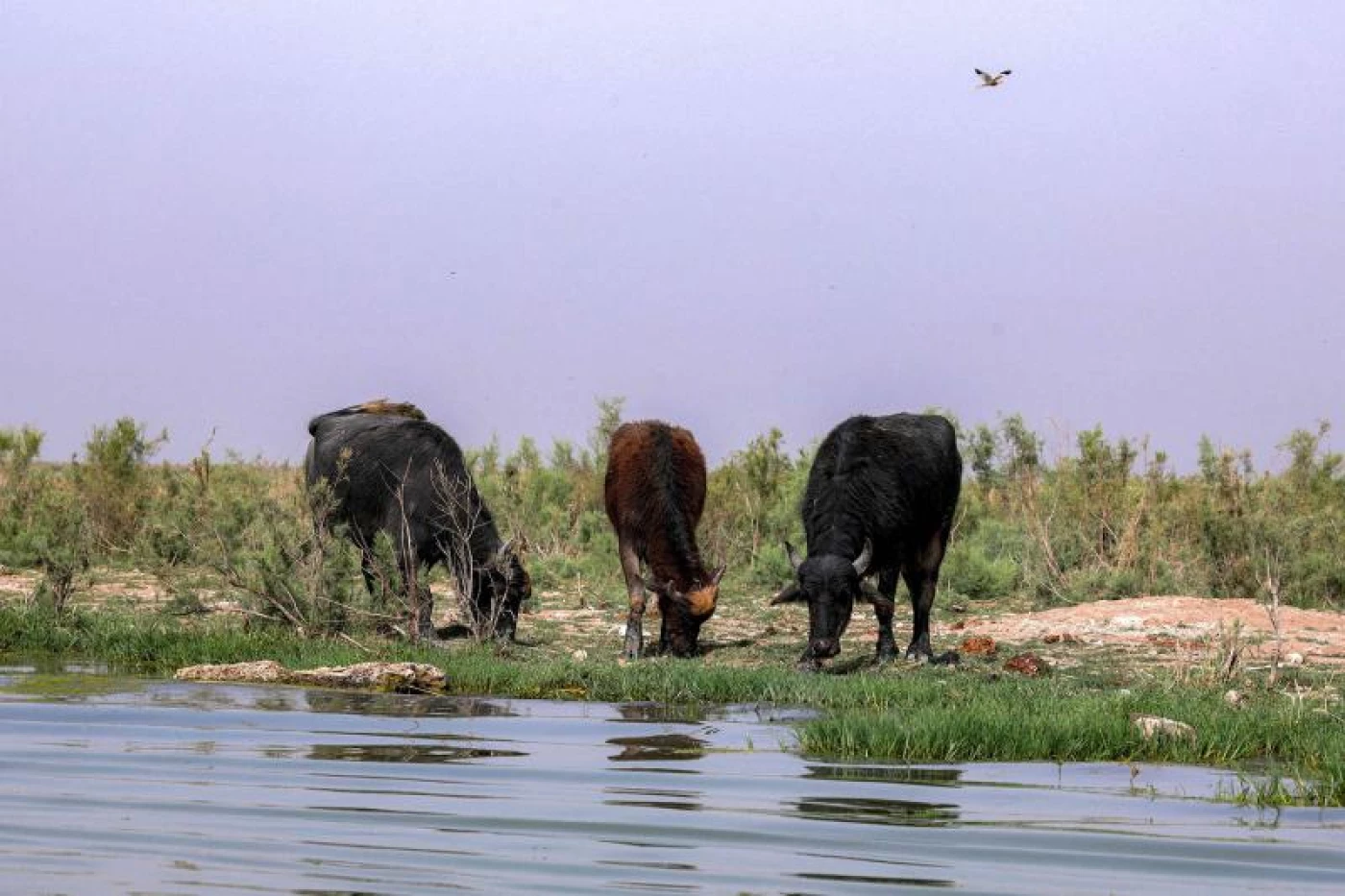DUBAI, UAE - Iraq’s Ministry of Environment on Sunday said it had launched a joint project with Iran to prepare a memorandum of understanding on the shared management of the Hawizeh marshes.
Najla al-Waeli, director general of the ministry’s technical department, said the drop in river water levels has reduced the quality of drinking water and caused large parts of the marshes to dry up.
She warned that the situation threatens the loss of a complete ecosystem, soil degradation, desertification, more frequent dust storms, higher air pollution, and risks to biodiversity, including the possible extinction of some species.
Waeli said the ministry has drawn up several plans to deal with drought, but some of them require cooperation with other ministries. She added that Iraq’s Supreme Water Committee has approved most of the ministry’s proposals, such as building water-harvesting dams, introducing closed systems for fish farms, and ensuring that all wastewater is fully treated before being discharged into rivers.
Waeli noted that Iraq’s marshes are listed by UNESCO as a World Heritage Site under four components. She stressed that preserving them requires government efforts and international support, adding that the new project with Iran is part of that effort.
The marshes, a UNESCO World Heritage site, have been severely affected by climate change, including rising temperatures and drought.
The crisis has led to the loss of large areas once used for farming, fishing, and livestock, forcing many indigenous inhabitants to relocate to other parts of the country.
Water shortages have been exacerbated by upstream restrictions imposed by neighboring Iran and Turkey.



 Facebook
Facebook
 LinkedIn
LinkedIn
 Telegram
Telegram
 X
X


